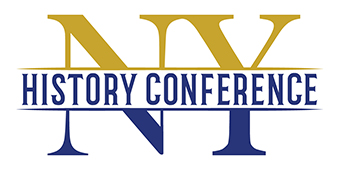News
The 2026 New York History Conference Call for Proposals
Dec 16, 2025

The Hudson River Valley Institute is very excited to announce that the 2026 New York History Conference will be held at Marist University on June 11 & June 12, 2026. This will be the third year of this iteration of the New York History Conference, and Marist will be the first new site for the event after two very successful years in Albany at the New York State Museum. HRVI, in conjunction with New York State Historian Devin Lander, the New York State Museum, New York State Library, New York State Archives, the Archives Partnership Trust, the Cooperstown Graduate Program, and the Association of Public Historians of New York State, will partner to present the conference in the upcoming semiquincentenial (250th) year of United States independence.
Call for Proposals
The New York History Conference is accepting proposals that deal with the history, culture, economy, politics, geography, anthropology, or archaeology of New York State. We also welcome proposals that use New York’s history as a lens to understand a regional, national, or international issue. Special consideration will be given to topics that directly relate to the theme of the 2026 conference.
We encourage submissions from historians, anthropologists, archeologists, educators, high school and college students, and/or digital humanists engaged in the study of New York’s history at libraries, archives, historic sites, museums and historical societies, and educational institutions. We particularly welcome proposals that illuminate the diversity of New York’s history in regard to race, ethnicity, religion, ability, and/or gender.
Conference Theme: New York at 250: The Empire State’s Role in U.S. Independence
Date: June 11 & 12, 2026
Location: Marist University
As the United States commemorates the 250th anniversary of its independence in 2026, the 2026 New York History conference provides an opportunity to reexamine New York State’s role in the struggle for independence before, during, and after the period of the American Revolution. Long before the first shots were fired at Lexington and Concord, even before the first Europeans arrived in North America, the land that would become the Empire State was occupied by a diverse network of Indigenous communities. While the American Revolution was fueled by questions of how to govern, individual and community rights, social and economic freedoms, and access to and control of resources, the questions themselves preceded and have continued beyond that period of conflict.
Proposals for roundtable discussions, panels, single presentiations, and lightning round presentations are all encouraged!
Proposals Due: December 15, 2025 Deadline extended to January 5, 2026!
Learn more: https://nysm.nysed.gov/research-collections/state-history/notes/2026-call-proposals